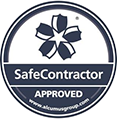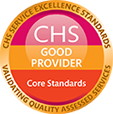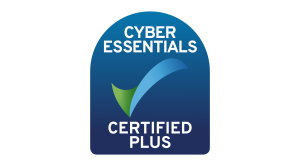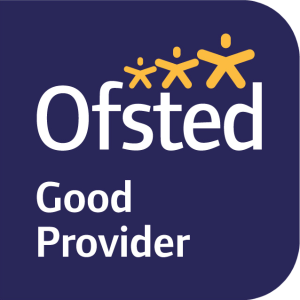Frequently asked questions
Information for Children and Young People
What is an ISVA?
- An ISVA is an Independent Sexual Violence Advisor, an ISVA supports people who have been a victim of sexual abuse.
- We are here to help support you with what you have been through
- You can talk to an ISVA no matter when the abuse happened or if you have told the police
- Your ISVA will come and meet you, they will get to know you and ask questions to find out how they can help you.
- Your ISVA can speak to you on the phone or video, or come and see you at home, school or somewhere else you both feel is safe.
- If you are working with the police, your ISVA can help make sure you understand what is happening with the investigation. They will help answer your questions and any worries you have.
- Your ISVA is someone to talk to. They want to help you to feel safe
- They will never judge what you say or how you feel.
What will my ISVA help me with?
- Help to understand your feelings and emotions and helping you to find ways to deal with them.
- Help to feel safe, including how to feel safe after flashbacks or nightmares.
- Explaining your choices, such as whether you would like to talk to the police, to school or college, or to family and friends.
- Help to stand up for your rights and to explain your thoughts and wishes to school, college, family and anyone else.
- Supporting you and your family.
- Finding further support like therapy.
- Support with reporting and understanding what is happening with your police investigation. Your ISVA can come to court with you if you need to go.
When and where will my ISVA talk to me?
- Your ISVA can see you at school, at home or somewhere else that you both feel is safe.
- They will talk to you about how often you would like to hear from them, and whether you would prefer for them to organise appointments through a parent or carer.
Will my ISVA tell people what I say?
- Your ISVA is someone ‘confidential’ to talk to. This means that they wont talk to other people including parents and school about what you have said.
- The most important thing for your ISVA is your safety. If you tell them you, or another child is in danger then they will have to tell someone. They will talk you through any steps they need to
take.
What do the Abbreviations and Acronyms mean
ISVA – Independent Sexual Violence Advisor/ Advocate
IDVA —Independent Domestic Violence Advisor/ Advocate
ChISVA/ CYP ISVA —Children’s and Young People’s ISVA—supports children and their families/ carers.
SARC – Sexual Assault referral centre
OIC – Officer in charge of the case – this is the officer that is investigating the crimeyou have alleged.
ABE/ VRI –‘Achieving best evidence’ or Video Recorded Interview. this is a video recorded interview given by a Victim/witness regarding the incident.
OIC—Officer in charge of the investigation
SOIT – Sexual offences investigation team
CAIU – child abuse investigation unit
CPS – Crown Prosecution Service – The Crown Prosecution Service is responsible for prosecuting criminal cases investigated by the police in England and Wales.
COUNSEL/PROSECUTION – this term may be used to refer to the barrister or other legal advisor dealing with the case and prosecuting the Offender.
SUSPECT/ ALLEGED PERPETRATOR – the person who is accused of committing the crime
BAIL – whilst a suspect is being investigated for a crime they may be arrested and released on bail. This will mean they will have certain conditions to abide by and they will need to report back to the police station.
CHARGED – Once the police have investigated the case, the CPS will review the evidence and decide if there is strong enough evidence, and it’s in the public interest for the suspect to be charged.
DEFENDANT/ DEFENCE – a term used to describe the suspect and their legal representatives once they have been charged.
NFA – No further actioned – where SOIT or the CPS have decided that there is not enough evidence to realistically get a conviction or it is not in the public interest to continue the case.
TRIAL – A hearing in court where all evidence that the police have gathered as part of an investigation is heard, and a jury to then decide whether the defendant is guilty of the offence they have been charged with.
SPECIAL MEASURES – Measures that can be put in place to assist in giving evidence.
ADJOURNED – when a trial cannot go ahead as planned and a new date is set.
Information for Adults
We understand that having a child who has experienced sexual abuse can be a very upsetting and traumatic time for not just them, but yourself and your whole family. We hope this information provides some insight into the support we will provide your family.
- We have a team of children and young peoples ISVAs to provide the specialist and appropriate care and support for anyone under the age of 18.
- All members of our team complete additional training and safeguarding to support children and young people.
- Our support remains confidential between the child or young person and the ISVA.
- We will provide a minimum of three months of support. If the child is supporting a police investigation, an ISVA will remain involved throughout the case.
- We can provide face to face support at school, home or another safe place that has been discussed with the ISVA. Sometimes meeting outside of the home can feel safest.
- Click—for further information on ‘What we do’
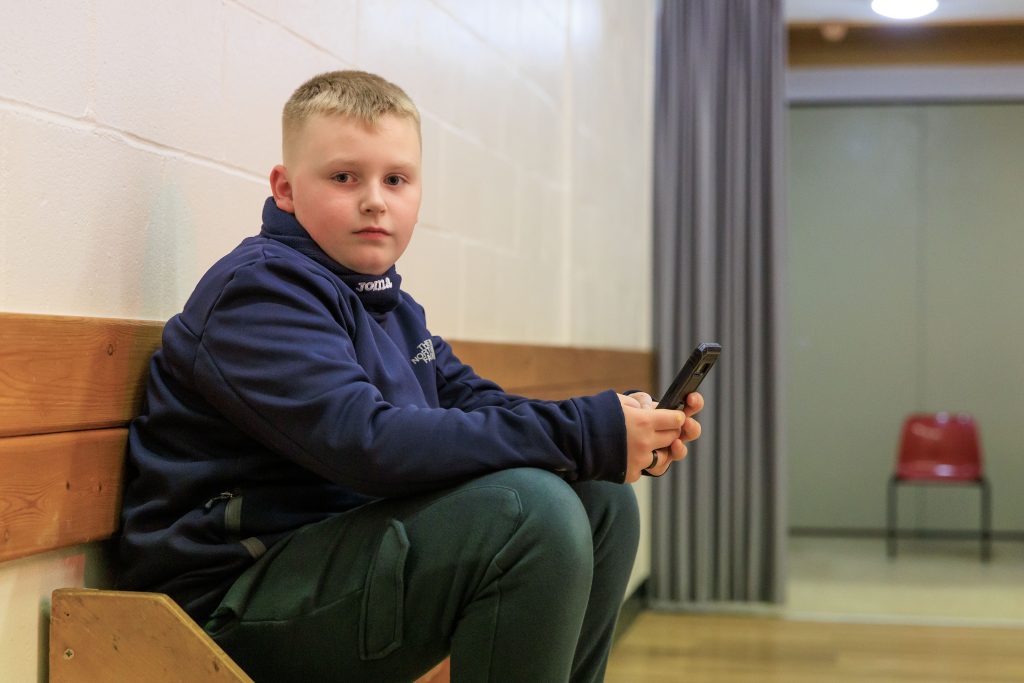
Children 12 and under
-
- We know that children can be very resilient and perhaps support from us right now isn’t needed or appropriate. Sometimes it’s parents and carers that require greater support in order to support their child following the
-
- trauma of sexual abuse.
-
- Our ISVA’s can work with both children and non-abusing parents where needed or if this is best.
-
- We like to complete a needs assessment with both parent and child, elements might be asked both together and separately. We want to get to know how everyone is affected and how we can best support the victim and
-
- their family. Our support is client-led. Ensuring every child is comfortable and feels safe
-
- with their ISVA is our priority, and so our sessions will be undertaken sensitively and in an age appropriate way.
- Some of the things an ISVA may cover with a child is recognising and managing feelings and emotions, identifying and knowing how to use their support network, safety planning.
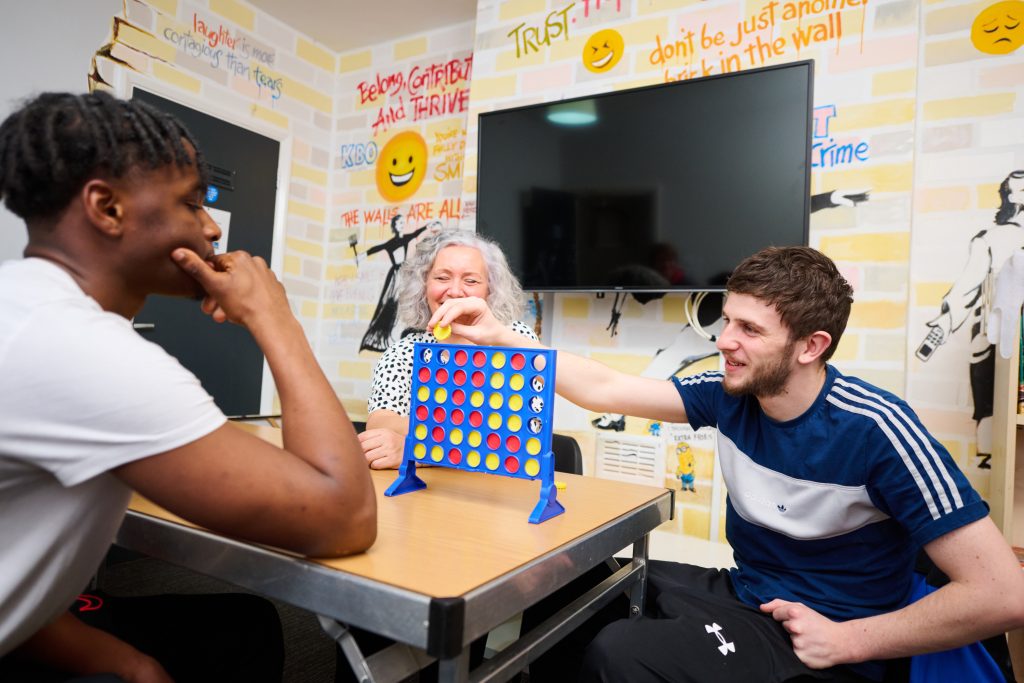
Young people (13-17)
-
Our support remains client- led and we want to ensure that young people we work with feel safe and able to trust their ISVA. That they have a place where their voice will be heard.
The risk and needs assessment can be completed in several ways – some young people want to complete it without parent/carer involvement, others are happy for them to be involved in this process.
Communication with parents is often minimal, we can work with young people without parent’s consent or knowledge, if this is what a young person needs and where we feel is appropriate.
Although we don’t work directly with our young people’s parents, we can signpost and refer you and family members to the right service that will provide any needed support.
The sessions will cover topics such as emotional wellbeing including understanding the impact of trauma, looking at coping strategies and identifying and using support network, Safety including safety planning, understanding the
criminal justice process.
A note on Safeguarding
- We are aware of our duty to safeguard every individual that we work with but especially our children and young people.
- We explain our safeguarding and confidentiality to all when our work begins. This is done in an appropriate and child-friendly way.
- Our support remains confidential between the child or young person and the ISVA. We will not disclose what has been discussed with anyone including parents and carers unless there is consent to do so, or should we have concerns for their safety or wellbeing.
- We work alongside agencies to safeguard children. If children services and/or police are not aware of the sexual abuse a child or young person has experienced, and we feel that there is a safeguarding need due to a risk of further harm, then we may complete these referrals ourselves. We always try to discuss this with our clients firstly.



